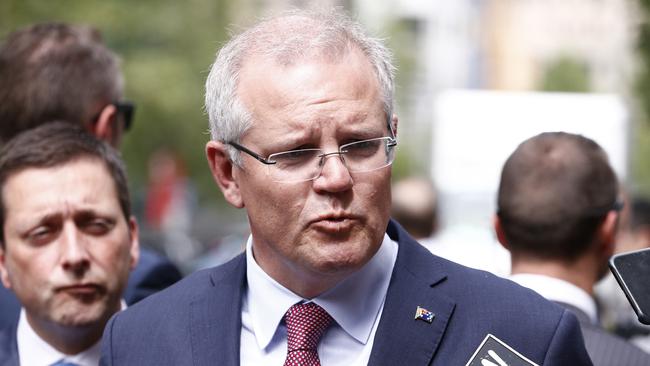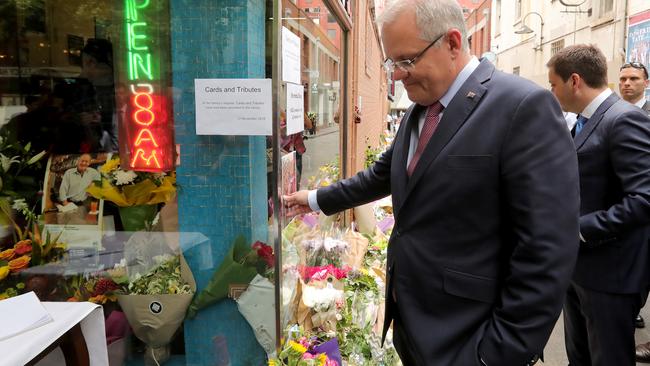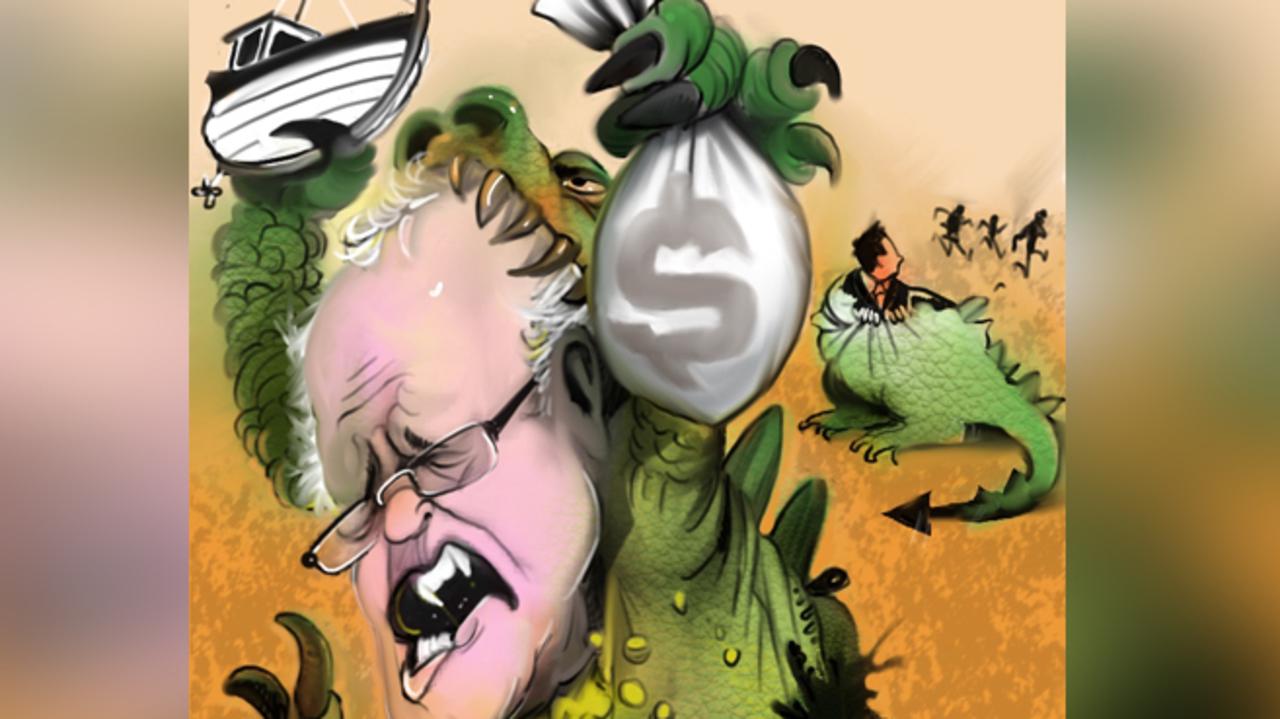So much calamity — all for a handful of Wentworth votes

It is both disappointing and disturbing that some Muslim leaders have decided to boycott a meeting with Scott Morrison to discuss ways of tackling problems in their community with radicalisation and terrorism.
Following the deadly latest attack in Melbourne on November 9, the Prime Minister did not say anything that could be seen as provocative or offensive. In fact, his remarks were eminently reasonable.
This is what Morrison said, after commending Muslims for working to protect their families and communities: “But there is a special responsibility on religious leaders to protect their religious communities and to ensure that these dangerous teachings and ideologies do not take root here. They must be proactive, they must be alert and they must call this out, in their communities and more broadly, for what it is.”
Furthermore, before he spoke, which was almost 24 hours after the attack had occurred, Morrison had sought counsel from police, intelligence agencies and from friends in the Muslim community with whom he has worked for years.
It was no kneejerk reaction but a considered response in line with what many Australians would expect from their prime minister after another atrocity in the name of religion. He wanted to know more from the Australian Federal Police and ASIO about the perpetrator and what led to the attack before he said anything. He subsequently cleared his remarks with the experts and spoke to his good friend, Jamal Rifi, another highly respected Muslim leader.
Apart from that, the invitations to the meeting were issued without fanfare. The media was not told it was happening, nor was he seeking publicity for calling it. There was to be no photo opportunity when they gathered. He did not want it turned into a circus, or to invite accusations of political grandstanding. It was meant to be a confidential, serious discussion about what was going wrong, why and what else could be done to address the problems.
How people could be offended by what he said or the way he went about it is what is most disconcerting about the whole thing.
He did not, as the group claimed in its statement announcing the boycott, “infer that the community was collectively culpable for the criminal actions of individuals”.
Nor did he accuse them of radicalising anybody.
What he is concerned about is that some of them are “letting the wolves into the pen”, that there would be people who know they are up to something — or suspect it — but do nothing.
As a religious person himself, Morrison was angered by the boycott.

He expects Muslim leaders, along with pastors of his own church, to do whatever they can to look after the wellbeing of their communities. Where they fail or are neglectful, they should expect to be called out for it and not seek refuge in accusations of discrimination.
Morrison’s approach following the Melbourne tragedy showed he has learned on the job.
For all Morrison’s pluses — his energy, his political acumen, his ability to pivot from the Pacific to immigration — the captain’s call to consider relocating the Australian embassy from Tel Aviv to Jerusalem exposed the biggest flaw in his leadership style.
Opposition Treasury spokesman Chris Bowen loves calling him SloMo. Morrison’s problem was not that he moved too slowly but that with all the Scomotion, he forgot to tap the brakes.
The call exposed divisions in the government that will remain whichever decision he ultimately takes on the embassy. It disrupted the government’s agenda, distracted from his chief mission, which should be to keep a steely eye on the economy and everything connected with it, including immigration targets, and it will do so again after it has been taken.
He was charged with being weak or submissive or stubborn. He has been accused of both opportunism and poor judgment for risking Australia’s standing in the region, not to mention a multi-billion-dollar trade deal with Indonesia, for the sake of a few votes in a by-election. Those votes incidentally were already in the bag, so he gained nothing except more angst.
It illustrated perfectly the dangers when prime ministers fail to follow due process. Cabinet ministers felt free to slap each other’s faces in public as they discussed their support or opposition. Morrison was in no position to haul them into line because he was responsible for starting it.
Debate over whether the move was actually a good idea was overtaken by personal enmities, rivalries and the pursuit of the politics of the warm inner glow (now rebadged as debates on values).
Steven Ciobo, Christopher Pyne, Josh Frydenberg, Zed Seselja and an assortment of backbenchers have all felt compelled to share their views on whether it’s a good or bad idea, then give one another a flick along the way. Frydenberg made an apology of sorts to Pyne — who as Defence Minister at least has a portfolio interest in the issue — after describing him as a legend in his own lunchtime. And they are in furious agreement that the embassy should be moved! Frydenberg resents the insinuations that as the most senior Jewish person in the government, he was motivated by his faith. It may be annoying but not surprising, seeing as he urged Morrison to announce consideration of the move because it could help with the Jewish vote in Wentworth.
With China clearly in mind, at least the Trade Minister, Simon Birmingham, trod delicately last weekend when he made the obvious point that Australia’s economic and security interests would be well-served by signing the trade deal.
“Ultimately, our national interests, our processes, will inform our decisions,” he told ABC’s Insiders. “But we hope and trust that we will also see the trade agreement signed and delivered because of those mutual benefits to both Australia and Indonesia. And Indonesia’s growth and economic empowerment is so critical in terms of ensuring a stronger region, stronger ASEAN nations and the balance that exists strategically within our region.”
If every foreign policy issue confronting Australia now begins and ends with China, including relations with Pacific neighbours, then surely strong ASEAN nations and strong bonds with them are critical for Australia’s future prosperity and safety.
Compared to that, there is little to be gained from shifting an embassy 14,000km away 70km down the road. As Birmingham said, we should not allow ourselves to be bullied into or out of anything. We should be capable of making decisions for the right reasons, driven by our national interest, not by wounded pride or macho diplomacy, or by allowing symbolism to trump substance. And certainly not by trying to smother one mistake with another.


